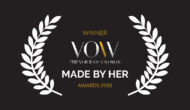THE VOICE OF A WOMAN TALKS | LEADERSHIP
https://vimeo.com/51691974
HELENA MORRISSEY CBE
Helena Morrissey is 49 years old. She is the CEO of Newton Investment Management, which employs over 400 people and has £48.3 billion worth of assets under management, and is also chair of the Investment Association, representing all of the UK's fund-management groups, which together look after £5.5 trillion ('I sometimes have to Google it to get the right number of noughts,' she says). In 2010, she launched a charity called the 30% Club to get more women onto the boards of British companies; she is active in charity work, particularly for the Eve Appeal, which raises funds for research into gynaecological cancers; and she chairs the corporate board of the Royal Academy of Arts. She has a husband, two homes and nine children. NINE CHILDREN. The children are all her own - there are no twins or triplets, and they range from six to 24. She has only one nanny, and right now that nanny is off sick. Helena also bakes elaborate cakes on Saturdays.
Suddenly, I feel like I have acres of free time in my life, literally tumbleweed, all those minutes that are totally unaccounted for... Helena Morrissey doesn't tend to have minutes that are unaccounted for. She wakes at 5am, has an hour in the house to do things like put on the washing, get ready and start sending work emails, before her children wake up and she throws herself into the frenzy that is family breakfast. They have never had a live-in nanny, so Helena is the one on toast duty. She lives in a five-bedroom house very close to Notting Hill Tube station, and knows precisely when the train leaves so she can time her exit and be sure to be in her office in Blackfriars in under 20 minutes. She is usually at her desk by 7.45am at the latest. We are meeting - in a shiny, windowless boardroom at Newton - only because a rare spare hour popped up in her BlackBerry schedule. She comes in, slender as a whippet in new-season Roksanda, bright orange and purple - 'this is its first outing!'- and wearing an engagement ring the size of a Fox's Glacier Mint. She is glamorous, purposeful, feminine and friendly, and it is easy to see why the people who work with and for her are so devoted. They describe her as 'brilliant' and 'unique', but also able to operate 50 per cent faster than everyone else, so that 'it is a real scramble to keep up with her'. When we talk, she speaks so fast that there are moments when I worry whether she is giving herself enough time to breathe.
'It's good to make people understand I'm not entirely responsible for the way I'm made. I was always like this, I came out like this, I was the manic Brownie, the one who had all the badges. I was a bit hyperactive, I did lots of piano, lots of music, I worked hard. But my parents never pressured me, quite the reverse - they would say, "Please don't carry a book around when we are shopping."
Helena was raised near Chichester. Both her parents were teachers, and she attended the local state school. She was always drawn to maths and sciences, and got a first glimpse of what a male-dominated world might be like in her A-level maths class. 'I was the only girl, and we ][had two male teachers. In the beginning it was very competitive, I struggled with the syllabus and was very much excluded.' But she also learnt the difference a female voice can make in this sort of environment: 'When I worked out a way of doing it, when I became more accepted, the dynamic changed. As I became more a part of the group, it became more fun. If there was a problem that none of us could solve, then we'd actually work together, rather than everyone for themselves.'
She studied philosophy at Fitzwilliam College, Cambridge, and joined the asset-management firm Schroders not long after graduating. A rising star, she was sent to New York for two years. 'America gave me a distorted view of what was normal, in terms of gender balance. It was a small office, only about 20 of us, and two of the most senior people were women. I remember when one of them summoned me to her office to ask me about some strategy, and she had a manicurist in there with her, working on her nails while she spoke to me, and I just thought, "She really does call the shots, she can do that and no one bats an eyelid."' But bond desks back in London in the late Nineties were a very different kind of place. 'At Schroders, if you were an associate director, at 3.30pm you would get tea in a china cup and saucer delivered to your desk, along with a copy of the Evening Standard, so your position in the company hierarchy was made obvious to everyone every day.'
Helena had married Richard Morrissey, whom she met at Cambridge, when she was 21, and they had their first baby, Fitz, when Helena was 25. She took five months' maternity leave (longer than any of her subsequent leaves), and a couple of years after returning to work was passed over for a promotion. 'So I asked what it was about my performance that was not up to scratch. And do you know what my boss said? "Well, it's quite old-fashioned, but you've just had a baby and we're not sure of your commitment." And initially, being a woman, I thought, "I'm going to prove them wrong, I'm going to work really hard." But soon after, I started to get some calls from a headhunter...'
She moved to Newton, which was a smaller, more meritocratic company with a flatter, less hierarchical structure, and within seven years, by the time she was 35, she was made CEO. 'The culture of a workplace is so important, especially when you are a woman. My advice, when women come and say things like their pay is lower than their male peers, is that they really do have to leave. No one wants to be a quitter but why should you spend all your energy fighting that, rather than being somewhere people will appreciate how brilliant you are?'
Newton certainly recognised Helena's brilliance and supported her while she had more children, and then more, and then more. When they hit four, Richard, a financial journalist, gave up work to manage the house and to train as a Buddhist monk. He now teaches meditation, as well as running the family, going to assemblies, matches and concerts, arranging the Christmas stall at the school fair (about which he is very competitive, slightly contrary to his Buddhist learnings), and cooking the family meal in the evening. 'They would all starve to death if I was the one doing the cooking. But I can make cakes. We do that at the weekend. Bea, my littlest one, is very ambitious on the baking front, so some of the requests can be rather difficult, but it's fun, I find it quite therapeutic.' The other thing she finds therapeutic is pilates, popping out of the office for classes. 'It's important for me, because the exercises are so blooming difficult that I have to focus on it and all the thinking stops, whereas other times my brain is just whirring.' She is home by 6pm most evenings, and will hang out with the children before returning to her BlackBerry to deal with the American markets once the children are asleep. She limits evenings out to two a week, and these are usually functions relating to her charity commitments. Most important is the 30% Club, which really is her 10th baby, and came about following a lunch at Goldman Sachs in 2009. The thinking behind it was research that suggested that a minority voice would only be heard once it reached 30 per cent. The opinion of one woman on a board of 10 will be ignored, but three will be listened to, with positive benefits for the company and for women in business. Some suggest that the financial crash of 2009 might not have happened if there had been more women on boards. 'There are hormonal differences which mean that men and women's bodies react differently to stress. Testosterone was a big factor in the crisis - people putting all their money on black and winning, and then needing to keep on winning. But women only produce a tenth of the testosterone of men, which means we're a kind of stabiliser. It's not that women don't like taking risks, but we're super-aware of the risks we do take.'
Helena's work with the 30% Club has made a tangible difference, with figures up from 12.5 per cent of women on FTSE-100 boards in 2010 to 26.1 per cent by the end of 2015. In 2014 a US branch was opened, and Helena has become a figurehead for rectifying gender imbalance in business management. She has commissioned research from behavioural psychologists about women in the workplace to prove that children do not limit a woman's ambition. 'Their findings were that the dangers were usually when women were in their 30s, when they are having children, but if they can make it through to their 40s, women are more ambitious - but to get to that point, they really need to have a good cultural fit, and that certainly reflects my experience.' Last April, Helena handed over the day-to-day running of the 30% Club to Brenda Trenowdown of ANZ, 'because, to be honest, it became too big'.
Like any human being, Helena does have limits - they are just not the same as those of most other people. She found hers in 2013 when she was invited to conduct a three-month review into the internal workings of the Liberal Democrat party following allegations of harassment against Lord Rennard, which she took on in addition to all her other commitments. 'I was trying not to do it in office hours, so I was getting up at 3am, doing it at weekends, and I'd look disgusting, and the children would say, "You haven't brushed your hair, Mum!" So I knew then that I'd found my boundary.' She was also, until last year, the chair of the Eve Appeal. She was drawn to the charity not only because she has six daughters, but also because when she looked at the numbers, her business brain realised that it would be relatively straightforward to make a meaningful impact.
'Forty per cent of women who develop gynaecological cancers die from them, which just seemed awful, it was always diagnosed too late, and so little progress was being made in the research. What I liked about [the charity] was that it was quite small, and didn't have a huge amount of money, but had some excellent researchers. So it was about kickstarting a project, and then once people can see the results, it attracts other people in.'
Colleagues who work with Helena say that one of her great skills is her ability to pull people together, to make them collaborate; to electrify people with an idea and the possibility that, if they team up, greater change can be effected. 'One of the things I have learnt from the 30% Club is that if someone says, "I'm doing this all by myself, this is all me," you don't get very far, really, because you've built walls around yourself. It's far more powerful when people say, "Look, nobody gets the credit for this, we're just all going to solve this problem together, because it needs solving."'
Helena Morrissey might sound a bit like a superwoman but, fortunately, we all now know the idea of the superwoman is unrealistic, as it implies that someone isn't quite human - and doesn't possess the weaknesses that make us human. Helena does have weaknesses, and she is aware of them. Like many women, she says sorry too much for things that are not her fault. She admits that she is not competitive with other people, only with herself: 'Women in particular are very self-critical.' And then there is that unquenchable desire to work, so that once one project is finished, another is begun without a moment to rest in between, although whether that is a weakness or a strength is debatable.
Of course, it is diverting to imagine the Morrisseys' home life: Helena juggling about 80 different jobs, bending her extraordinary brain to solving the world's problems, while her children try to persuade her to sit down on the sofa for five seconds to watch The Great British Bake-Off and her incredibly chilled Buddhist husband attempts to limit the number of work emails she sends ('I just pretend I am sending really long ones') and informs her that she will know she has reached a more highly evolved state when she finally throws away all those Brownie badges she still has, safely stored in an envelope.
She says that her next goal in life is to learn how to relax, but I am not sure I believe her - she has never even tried meditation, despite the fact that her husband teaches it. The closest she has got to it is yoga with her eldest daughter Florence, now a singer living in Paris. But does it really matter? Because Helena Morrissey seems genuinely happy with who she is, with what she has achieved, with how she lives her life. She loves collaborating, making change happen; she loves doing the best she can; she loves buying beautiful shoes - 'I can justify it because I have six daughters, so everything will get used.' She loves it when the house is full of all her children.
'I think women are ambitious,' she says. 'But our ambitions are about the whole of our lives.' And that is very ambitious indeed.
By Gavandra Hodge for Tatler Magazine - Feb, 2016



